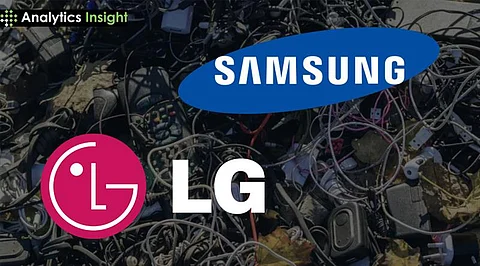

Tech giants LG and Samsung have taken a stand against the Indian government, filing a lawsuit over the new e-waste pricing policy. This policy requires manufacturers to bear the cost of recycling. It also imposes significant fees on companies, forcing them to pay substantially higher rates to recyclers. The lawsuit challenges the government's move, sparking a debate on the impact of environmental regulations on industry.
The manufacturers will have to pay recyclers more as part of this process. The government’s aim in implementing the new policy is to improve the handling of recycling for e-waste and to attempt to formalize the entire e-waste recycling sector. Both LG and Samsung claim that the costs to manufacturers are too high under this policy.
According to companies, the policy provides recyclers with an unfair advantage. Cyclers are said to benefit more with higher fees that manufacturers must pay. This is a major concern for companies, which believe it will result in a huge financial loss.
LG and Samsung are also questioning whether the new policy would achieve environmental goals. The manufacturers do not believe the pricing aspect of the policy will increase recycling or improve environmental conditions. The manufacturers are concerned that the pricing will act as a deterrent to compliance.
Regarding the regulations on tech companies, the lawsuit may raise concerns. As compliance costs continue to rise, many are wondering whether these regulations will achieve the environmental goals they aim to achieve. This ruling could set a precedent for e-waste regulations in other countries.
The legal battle between LG, Samsung, and the Indian government exemplifies a classic clash between business interests and environmental goals. While the policy aims to improve recycling, its effectiveness is unclear.
If the lawsuit prevails, it could lead to a reevaluation of e-waste policies that strike an optimal balance between environmental goals and the reasonable needs of businesses.
